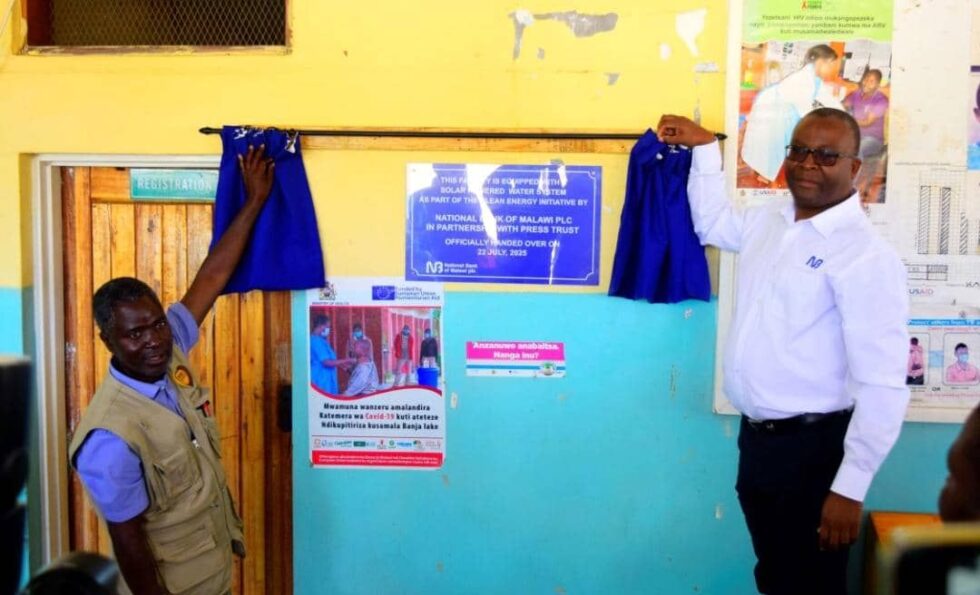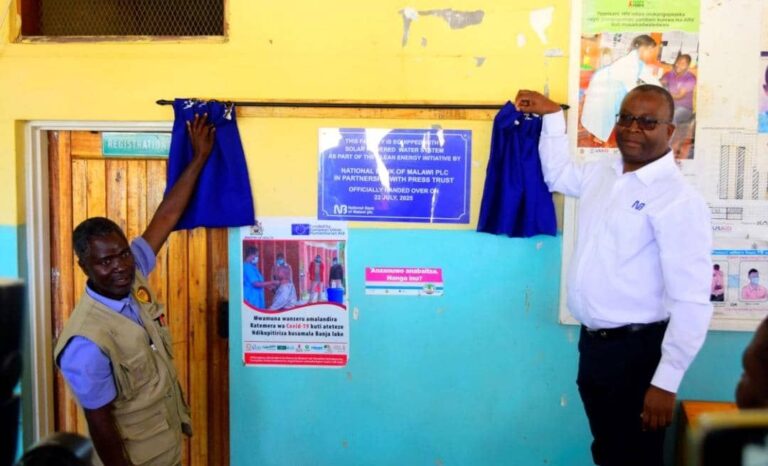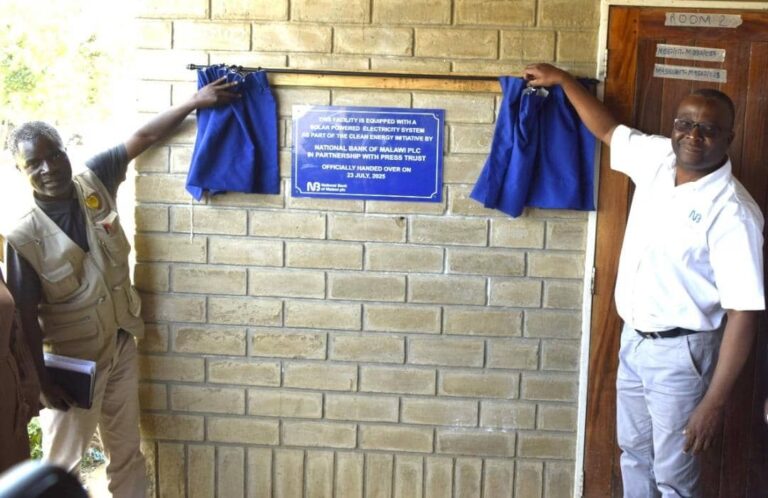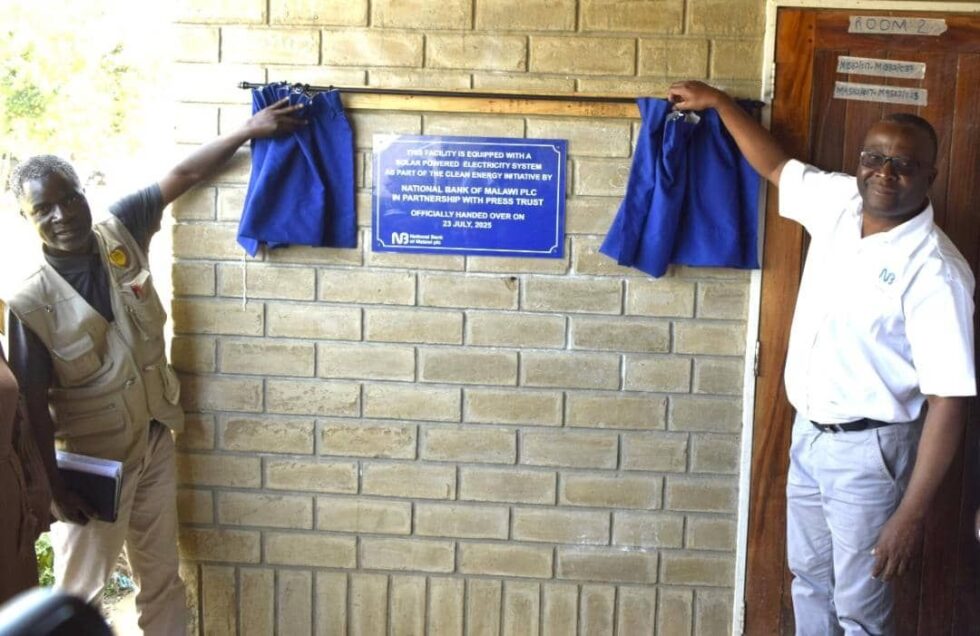By Linda Kwanjana
National Bank of Malawi plc (NBM), in partnership with Press Trust, on Tuesday handed over a solar-powered electricity and water pumping system to Nankumba Health Centre in Mangochi, significantly improving access to clean water and reliable power for healthcare delivery.
The system, which will pump water, power lighting, refrigeration, and essential medical equipment, is part of a broader K140 million Clean Energy Initiative rolled out by NBM plc and Press Trust in seven rural health and education facilities across Malawi.

Speaking during the handover ceremony, NBM plc Chief Operating Officer, Masauko Katsala, said the Bank was proud to contribute to the improvement of healthcare in the area.
“We, from the National Bank are very happy with the work that has been done here. This solar-powered system has alleviated numerous problems. Seeing the joy on the faces of the people here, we are happy that we undertook this project,” said Katsala.
He emphasised the Bank’s commitment to sustainable and community-driven development, describing the initiative as a reflection of NBM plc’s strong Environmental, Social, and Governance (ESG) principles.
Press Trust Trustee, Moses Maliro, highlighted that the decision to support Nankumba Health Centre followed persistent water and power challenges, which had severely disrupted the provision of quality healthcare.
“The Nankumba Health Centre has experienced several challenges, particularly in water supply. A health facility without reliable water and energy compromises patient dignity and safety. That is why we prioritised this centre. Through our joint initiative with National Bank, we are bringing solar-powered water systems to the areas that need them most,” said Maliro.
Mangochi District Council’s Director of Health and Social Services, Henry Chibowa Junior, thanked the two institutions, stressing the importance of private sector participation in complementing government efforts.
“The World Health Organisation recommends health spending of at least $84 per person annually. Unfortunately, in low- and middle-income countries like Malawi, we rarely reach that target. So, partnerships like this one with National Bank and Press Trust are vital to closing the gap in health service delivery,” said Chibowa Jnr.
The project has already started improving lives following remarks by Hawa John, a community member and patient at the health centre, who expressed gratitude for the intervention.
“Before this project, we had to fetch water from home to the clinic just to get medicine. It was very tough. This development has brought significant relief to many of us,” said John.
The installation at Nankumba Health Centre is part of a growing portfolio of NBM plc and Press Trust’s efforts to support Malawi’s health and education sectors through clean, renewable energy solutions.
According to the Bank, K17.5 million was invested in the Nankumba installation alone.










